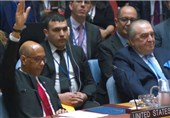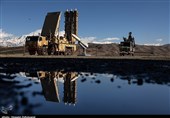Facemask Can Spot Coronavirus in a Day
TEHRAN (Tasnim) – Suspected coronavirus patients could soon be diagnosed with the deadly infection within half a day – by wearing a face mask.
Scientists have started a trial of the pioneering £2 gadget, which tests have already proven can detect tuberculosis, a deadly lung infection.
The masks, which could cost pennies if manufactured on a wider scale, are fitted with strips that soak up droplets from the wearer's breath, which may be carrying traces of bacterial or viral infection.
The strips can be tested in labs with results coming back within hours. Current tests for coronavirus can take up to 48 hours, the Daily Mail reported.
University of Leicester researchers believe it will be at least two months before they can test the masks on actual COVID-19 patients.
But they are hopeful it will work because it is a respiratory disease, meaning it infects the lungs and can is present in the air people breathe out.
Nearly 83,000 people across the world have been struck down by COVID-19, with 19 confirmed cases in the UK including six since yesterday.
First, the team have to test the gadgets on dozens of patients with other lung infections to prove they can pick up bugs other than tuberculosis, which they were designed for.
Patients with infections such as flu and bronchitis will have the results from their mask tests compared to those from throat swabs, which are known to be accurate.
Tests on tuberculosis patients, the only ones that have been done so far, show the masks can detect the killer disease almost 90 per cent of the time.
Leicester's Professor Mike Barer and colleagues are hopeful they will be successful because the coronavirus infects the lungs in a similar way to tuberculosis.
The virus, which has killed 2,800 people worldwide, is spread through coughs and sneezes. Symptoms include a fever, cough and shortness of breath.
Coronavirus tests for patients are only currently needed for people who have returned from fifteen countries with known outbreaks, or from those known to have been in contact with somebody confirmed to have had the virus.
Northern Italy, the South Korean cities of Daegu and Cheongdo, and Iran were added to the list of at-risk nations by the NHS earlier this week.
The other countries include China, Japan, Thailand, Hong Kong, Taiwan, Singapore, Malaysia, Macau, Vietnam, Cambodia, Laos and Myanmar.
Patients returning from any of these countries with flu-like symptoms are told to ring NHS 111.
They are then directed to their local hospital for tests in makeshift pods – in some cases tents or portable cabins – which have been set-up to deal with suspected cases.
Clinicians then swab patients and send the results to Public Health England, which analyses the sample and confirms or rules out COVID-19.
But it can take up to 48 hours for results to come back, meaning all patients who are tested are told to self-isolate at home until they are given the all-clear.
If the result comes back positive, the NHS arranges for the patient to be whisked off to one of four specialist treatment hospitals in England.
The Leicester team believe the masks could speed up the method to just half-a-day, after tests on TB patients showed they were much quicker.
Professor Barer said: 'Coronavirus is spread from the mouth, throat and respiration system of infected individuals.
'This new approach is exciting because it could help us determine whether a person is infectious or not, even before symptoms of the virus have appeared.
'The mask can be processed in any standard virus diagnostic laboratory. Successful development of this approach could be transformative.'
The masks currently cost around £2 because the polyvinyl alcohol inserts are all individually 3D-printed.
But Professor Barer said if the masks were manufactured on an industrial scale, it would cut costs down to just pennies.






